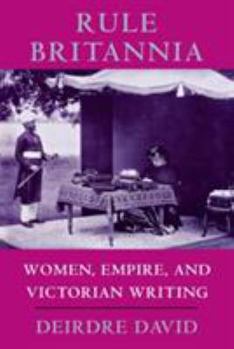Rule Britannia
Select Format
Select Condition 
Book Overview
Deirdre David here explores women's role in the literature of the colonial and imperial British nation, both as writers and as subjects of representation.
David's inquiry juxtaposes the parliamentary speeches of Thomas Macaulay and the private letters of Emily Eden, a trial in Calcutta and the missionary literature of Victorian women, writing about thuggee and emigration to Australia. David shows how, in these texts and in novels such as Charlotte Bront 's Jane Eyre, Charles Dickens's Dombey and Son, Wilkie Collins's Moonstone, and H. Rider Haggard's She, the historical and symbolic roles of Victorian women were linked to the British enterprise abroad.
Rule Britannia traces this connection from the early nineteenth-century nostalgia for masculine adventure to later patriarchal anxieties about female cultural assertiveness. Missionary, governess, and moral ideal, promoting sacrifice for the good of the empire--such figures come into sharp relief as David discusses debates over English education in India, class conflicts sparked by colonization, and patriarchal responses to fears about feminism and race degeneration. In conclusion, she reveals how Victorian women, as writers and symbols of colonization, served as critics of empire.





